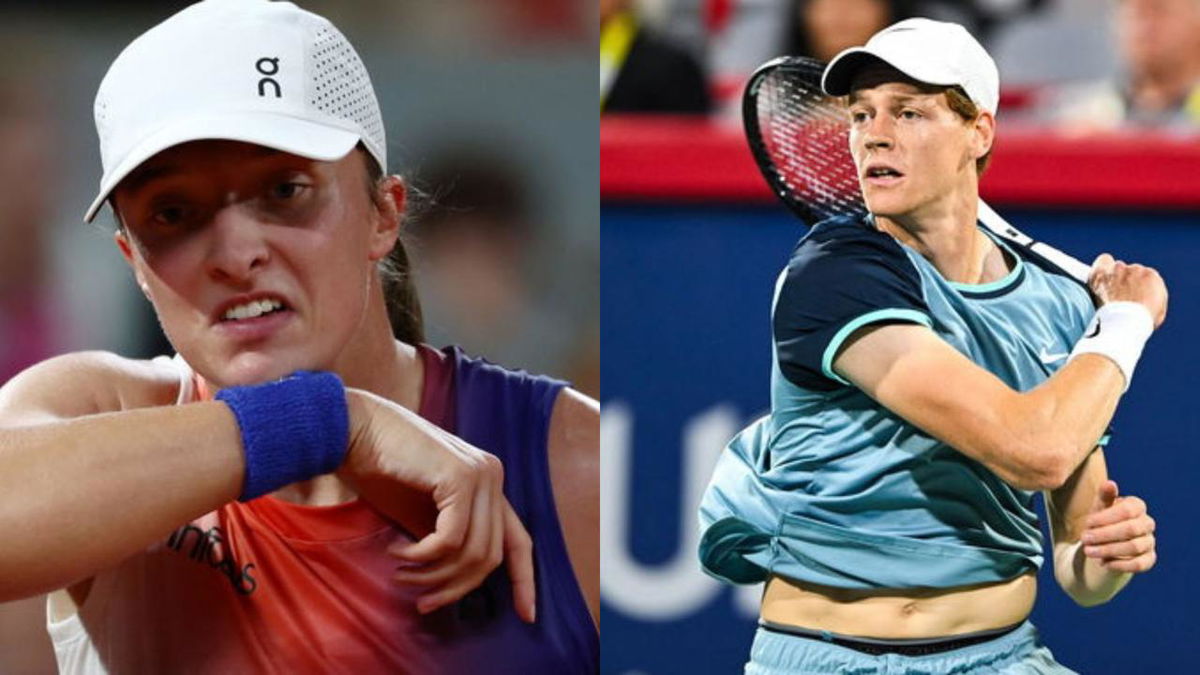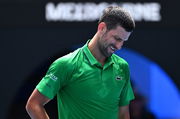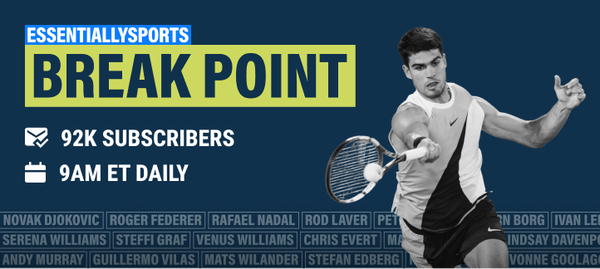
Imago
Image Credits: Imago

Imago
Image Credits: Imago
Tennis has long been a sport of fine margins, where a single decision, a fleeting misstep, or even a misunderstood supplement can alter a player’s career. The past year reminded the tennis world of this reality in the most dramatic way. When Jannik Sinner and Iga Swiatek found themselves entangled in doping controversies, fans and analysts alike were left shocked. Questions about the pressures, guidance, and education players receive off the court came rushing to the forefront.
Watch What’s Trending Now!
Recognizing this urgent need, the ITIA has now yet again stepped in—not with punitive measures, but with proactive support. The International Tennis Integrity Agency (ITIA) recently kicked off a new trial that will see players accused of doping eligible for financial support if they participate in the program.
Players accused of doping will now be able to use this financial support to test products like supplements in a laboratory or to identify sources of potential meat contamination. This package also includes a degree of free legal support and confidential third-party counseling. We saw both Jannik Sinner’s and Iga Swiatek’s cases wrapping up relatively quickly, if they’re compared to someone like Tara Moore, who had received a 4-year ban for an anti-doping rule violation in 2022.
ADVERTISEMENT
Sinner reached a deal with WADA and accepted a three-month suspension that ended in April this year. While for Swiatek, it was just a one-month ban. This had raised quite a few eyebrows and a lot of question marks. But now, the ITIA’s support is going to make a huge difference for all the players in the racket sport. This move is also a statement to the tennis community.
As per ITIA CEO, Karen Moorhouse, “Anyone who finds themselves part of either an anti-doping or anti-corruption investigation deserves the opportunity to defend or explain themselves, and we recognize the process can come at both a financial and emotional cost.“ He also added, “No player picks up a tennis racquet as a child with any motivation other than playing the game. Individuals find themselves in these situations for a lot of reasons, and so no matter what those reasons are, and where the case ends up, they also deserve someone to talk to.”
Interesting news from the ITIA: https://t.co/rW8ut2CpDt pic.twitter.com/m7pzDMY8uQ
— Reem Abulleil (@ReemAbulleil) October 8, 2025
ADVERTISEMENT
Moreover, individuals who are under investigation for potential Tennis Anti-Corruption or Tennis Anti-Doping offenses can access well-being support through a partnership with Sporting Chance, a mental health organization set up to support professional athletes. It has extended its free anti-doping pro bono legal support to players to start from when they first test positive for a banned substance.
A player can receive up to $5,000 for a lab accredited by the WADA to check a medicine or a supplement for contamination, or the same amount for help identifying possible sources of contaminated meat—a frequent explanation for failed doping tests in sports—and they can sign up for six sessions at Sporting Chance.
ADVERTISEMENT
As per the reports, this trial will be reviewed at the end of 2026. Time will tell if this move really helps out the players or not, but seeing tennis stars’ constant criticism of how Jannik Sinner’s and Iga Swiatek’s cases were handled with an angle of favoritism, this is definitely a positive move.
Not everyone has Jannik Sinner and Iga Swiatek’s fate!
If we take a closer look at Tara Moore’s case, she was provisionally banned in May 2022 for testing positive for nandrolone and boldenone at a tournament in the Colombian capital, Bogota. However, in December 2023, an independent tribunal ruled that contaminated meat was the source of the positive test and that Moore “bore no fault or negligence.” Although she claimed that she had never knowingly taken a banned substance in her career, the ITIA appealed that ruling, and following that, a court agreed with the ITIA that she should be suspended for using performance-enhancing drugs.
ADVERTISEMENT
A similar incident took place in June 2024 at an ATP Challenger event in Ibagué, Colombia. In this case, a lower-ranked player from Brazil, Nicolas Zanellato, tested positive for boldenone. But later on, he was cleared in the doping case by the ITIA. These examples remind us of the frequency in which pro players endure such harsh judgements despite the absence of negative intent. Lower-ranked players often can’t afford to appeal in these cases due to a lack of funds.
When Jannik Sinner and Iga Swiatek’s doping cases came to light, the tennis fraternity was split. While most of them criticized the way their cases were handled, some others shared a different perspective. For example, after WADA appealed for a harsher penalty, many players, including Nick Kyrgios and Denis Shapovalov, questioned the initial decision to clear Jannik Sinner. They claimed it was unfair to other players who had received bans for contaminated substances.
Top Stories
Novak Djokovic and His Team Tear Up During Emotional Confession at Australian Open

Jannik Sinner Reveals Biggest Regret After Tough Novak Djokovic Loss: “It Hurts”

Carlos Alcaraz Offers Apology to Novak Djokovic Due to Alexander Zverev Match

Who Is Jannik Sinner’s Girlfriend, Laila Hasanovic? Everything You Need to Know About Their Relationship

WATCH: Carlos Alcaraz Gives Retirement Scare as Alexander Zverev Left Stunned in Shocking On-Court Scenes

Even the 24-time Grand Slam champion, Novak Djokovic, raised some serious question marks, saying, “The question is whether a player can afford to pay a significant amount of money for a law firm that would then more efficiently represent his or her case. I feel like we have to collectively investigate how we can standardize everything so that every player, regardless of his ranking or status or profile, is able to get the same kind of treatment.”
ADVERTISEMENT
Not only that, but even earlier this year, during the Qatar Open, Djokovic pointed out the “inconsistencies“ in cases involving Jannik Sinner and Iga Swiatek when compared to those of lower-ranked players. He claimed, “It’s not a good image for our sport, that’s for sure.“ Having said that, Djokovic bemoaned the apparent “favoritism“ shown to Jannik Sinner and Iga Swiatek and the “frustrating“ inconsistencies in the process.
However, American legend Andy Roddick debunked all the myths surrounding Jannik Sinner’s favoritism tag. According to him, “If you can afford a fancy lawyer, you normally get to a result faster and softer than you know if you don’t.“ Now, this move from ITIA surely establishes equilibrium for players regardless of their rankings. What are your thoughts on this, though?
ADVERTISEMENT
ADVERTISEMENT
ADVERTISEMENT
